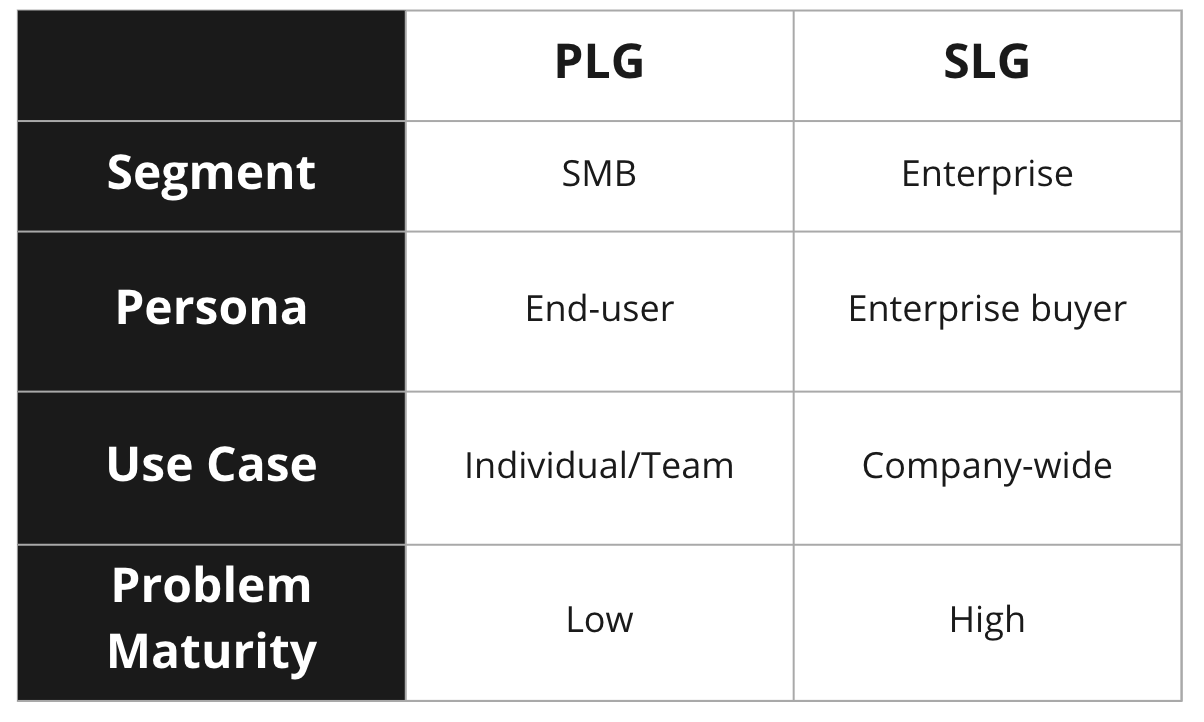Product-led growth is many things. But here is what it's NOT.
Seven misconceptions about PLG.
Product-led growth (PLG) is many things, but here are SEVEN things it is not:
Not a substitute for Sales-led growth (SLG)
Not a cheap way to generate a pipeline
Not a fast way to make revenue
Not a viable growth motion for every business
Not powerful without marketing and sales
Not a growth motion without connection to monetization
Not successful without Product ownership
Let’s dive in!
Not a substitute for the Sales-Led Growth
Product-led and Sales-led growth motions are successful across different segments, personas, and use cases and should be set up to complement each other, not compete or replace.
PLG cannot succeed in the enterprise segment with enterprise buyers like SLG: hard to communicate enterprise value prop in a product, have to have the right group of decision makers onboard, end users <> buyer, sales can more effectively increase perceived value, etc.
SLG cannot succeed in SMB: it may not be the preferred way to transact, ACVs cannot justify human involvement, etc.
So choose PLG a…
Keep reading with a 7-day free trial
Subscribe to Elena's Growth Scoop to keep reading this post and get 7 days of free access to the full post archives.



